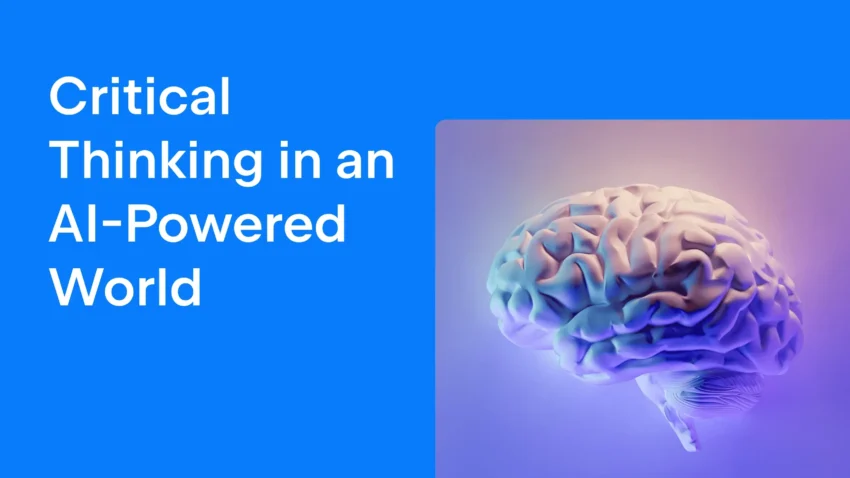In an age where artificial intelligence is becoming increasingly integrated into our daily work, a recent study from Microsoft and Carnegie Mellon University raises alarming concerns about our cognitive health. The findings suggest that while AI tools can enhance productivity, they may simultaneously erode our critical thinking abilities. As we lean more on these technologies to perform tasks, we risk diminishing our own skills and decision-making capabilities. This article delves into the research, exploring the fine line between harnessing AI for efficiency and allowing it to undermine our independent problem-solving skills.
| Key Point | Details |
|---|---|
| Study Overview | Researchers from Microsoft and Carnegie Mellon University conducted a study on the impact of AI reliance on critical thinking. |
| Main Finding | Increased reliance on AI tools leads to a decline in critical thinking skills. |
| Participants | 319 knowledge workers were surveyed about their use of generative AI tools at work. |
| Confidence Levels | Workers confident in AI’s abilities tended to relinquish control and engage less in critical thinking. |
| Task Types | Lower-stakes tasks showed more reliance on AI and less critical engagement. |
| Independence vs. Dependence | Less confidence in AI leads to more independent thinking and better evaluation of AI outputs. |
| Outcome Diversity | Users of AI produced less diverse outcomes compared to those who did not use AI. |
| Concern Raised | Reliance on AI may lead to deterioration of critical thinking and problem-solving skills. |
| Final Warning | Over-reliance on AI could result in losing essential skills and critical engagement. |
The Rise of AI and Its Impact on Human Skills
Artificial Intelligence (AI) is becoming a big part of our daily lives, helping us with everything from homework to work tasks. While AI can make things easier, researchers warn that relying too much on it might weaken our important thinking skills. This means that instead of helping us grow smarter, AI could make us less capable of solving problems on our own.
As more people use AI tools, they might forget how to think critically. This is especially true for tasks that seem easy or unimportant. If we let AI do all the thinking, we might not notice that we’re losing our own skills. Being aware of how we use AI is important so that we can keep our minds sharp and ready for challenges.
Frequently Asked Questions
How does AI usage affect critical thinking skills?
Using AI too much can make people less likely to think critically, leading to poorer problem-solving skills over time.
What did the Microsoft study find about AI and job performance?
The study found that workers relying on AI felt less confident in their own abilities and engaged less in critical thinking.
Can using AI lead to uniform results in work tasks?
Yes, relying on AI tools often results in similar outcomes because they operate within limited datasets.
What happens when workers lose confidence in AI?
When workers doubt AI’s capabilities, they tend to engage more critically and feel more confident in their own skills.
Are there benefits to using AI tools?
AI tools can improve efficiency in certain tasks, but relying on them too heavily can be risky for critical thinking.
What is a major risk of over-relying on AI?
Over-reliance on AI can lead to diminished independent problem-solving skills and a decline in cognitive abilities.
How can workers maintain their critical thinking skills?
Workers should balance AI use with independent tasks to keep their critical thinking skills sharp and effective.
Summary
A recent study by Microsoft and Carnegie Mellon University highlights the dangers of relying too much on artificial intelligence (AI) at work. Researchers found that when people depend on AI tools for tasks, their critical thinking skills may weaken. The study involved 319 workers who reported that higher confidence in AI often led them to think less critically. Interestingly, those who doubted AI’s abilities engaged more in problem-solving. The findings suggest that overusing AI could result in less creativity and poorer independent skills, raising concerns about our ability to think critically without technology.





